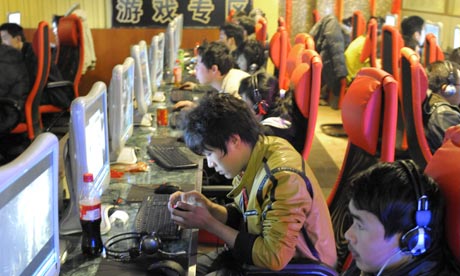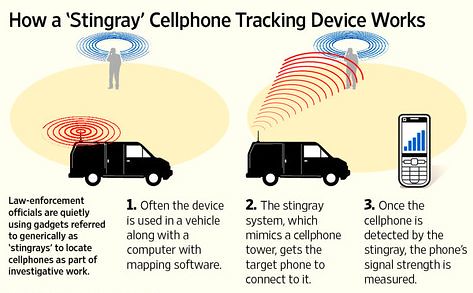China will begin rolling out free WiFi service across Bejing at the end of this month. The WiFi service will be free to use during the three year pilot program, at the end of which the government may change the model and begin charging individual users or businesses for access — although these terms have not yet been finalized.
The “My Beijing” wireless network, as it is to be called, is backed by three of the country’s largest telecom companies, China Mobile, China Unicom and China Telecom.
It will provide 2Mbps broadband WiFi to approximately 60 percent of Beijing. Some 90,000 access points will be installed by the municipal government over the next few years, according to China.org. There will eventually be 480,000 WLAN access points in the capital covering more than 6,000 hotzones.
“We’re not sure whether the service will still be free three years from now,” said Liu Yan, spokesman for the Informatization Office at Xicheng district government. “But very likely the city will be running under different models, with Wi-Fi services paid by individuals, companies or government in the future.”
However, to obtain the access password users need to enter cell phone numbers “for identity authentication” according to the Beijing Municipal Commission of Economy and Information Technology.
Engadget says that the link to a users cell phone number means that China’s government could trace individuals whose online activity might “endanger social security.”
Beijing Police have already issued a notice to all the cafes and bars which provide Wi-Fi access to install a monitoring system so users have to register their ID in the counter before logging in the Wi-Fi network.
The Register’s Bill Ray says the real concern with China’s approach is that creating a link between a mobile phone number and a web browsing history (plus a physical location) will open the door to even more mobile spam. The state’s officials are saying the data won’t be sold off to private companies, but some Beijing residents are skeptical.
Tying phone numbers to WiFi access is not unprecedented.
 UK mobile operator O2 plans to launch a 15,000-strong nationwide network of free Wi-Fi hotspots located in public places such as coffee shops, and open to customers and non-customers alike.
UK mobile operator O2 plans to launch a 15,000-strong nationwide network of free Wi-Fi hotspots located in public places such as coffee shops, and open to customers and non-customers alike.
When you first connect, you’ll be presented with a request for your name and mobile number, explains The Register. An identifying code is then sent to the phone as an SMS message: type in the code and you’re connected.
The mobile operator said that the key differentiator of O2′s free Wi-Fi hotspots from other hotspot providers is that it will be “genuinely free”, whether users are O2 customers or not.
At present, the UK’s O2 offers its own customers access to 7,500 hotspots through its partnership with The Cloud and BT Openzone. O2 hopes its own, free hotspot network will double this number by 2013. O2 Wi-Fi is a separate business unit from Mobile, and one that intends to have its own customer base and its own revenue streams, reports The Register.
 Orange and China Telecom signed a strategic partnership this month in Beijing. Orange will facilitate the ability of China Telecom’s customers to roam on WiFi hotspots in Europe; and China Telecom will facilitate the ability of Orange’s customers to roam on WiFi hotspots in China. China Telecom will also provide managed outsourced and field services to Orange’s multinational customers in China and allow Orange to improve IPVPN services to its enterprise customers in China and other Asia-Pacific countries.
Orange and China Telecom signed a strategic partnership this month in Beijing. Orange will facilitate the ability of China Telecom’s customers to roam on WiFi hotspots in Europe; and China Telecom will facilitate the ability of Orange’s customers to roam on WiFi hotspots in China. China Telecom will also provide managed outsourced and field services to Orange’s multinational customers in China and allow Orange to improve IPVPN services to its enterprise customers in China and other Asia-Pacific countries.
The U.S. Department of Justice now says its use of a cellphone-tracking device could be considered a “search” under the Fourth Amendment, a tactical move legal experts say is designed to protect the secrecy of the gadgets known as “stingrays”, that force a cellphone to “ping”, enabling the device to be continually tracked.
The Supreme Court is set to hear oral arguments next week in a case in which federal agents used a GPS device to track a suspect’s car for a month without a search warrant. The government argues that people driving on public roads don’t have a reasonable expectation of privacy in their public movements.
China is the world’s largest cellular market with 952 million mobile-phone users, yet only 11 percent have made the switch to 3G. China Mobile is now testing a new 4G network using the TD-LTE standard, while China Unicom, uses the international UMTS standard and China Telecom uses CDMA for 3G.
The Global TD-LTE Initiative, formed in February this year, is pushing global interoperability of the TD-LTE standard. Major telco operators in China, Taiwan, India, Japan, South Korea and the United States are part of the Initiative as well as Clearwire and Qualcomm.
Qualcomm’s Gobi MDM6600 chipset is what gives the iPhone 4S “world phone” status, working on both GSM and CDMA networks across the globe. The Snapdragon S-4 chips will add LTE in all flavors.





No comments:
Post a Comment
Thank's!